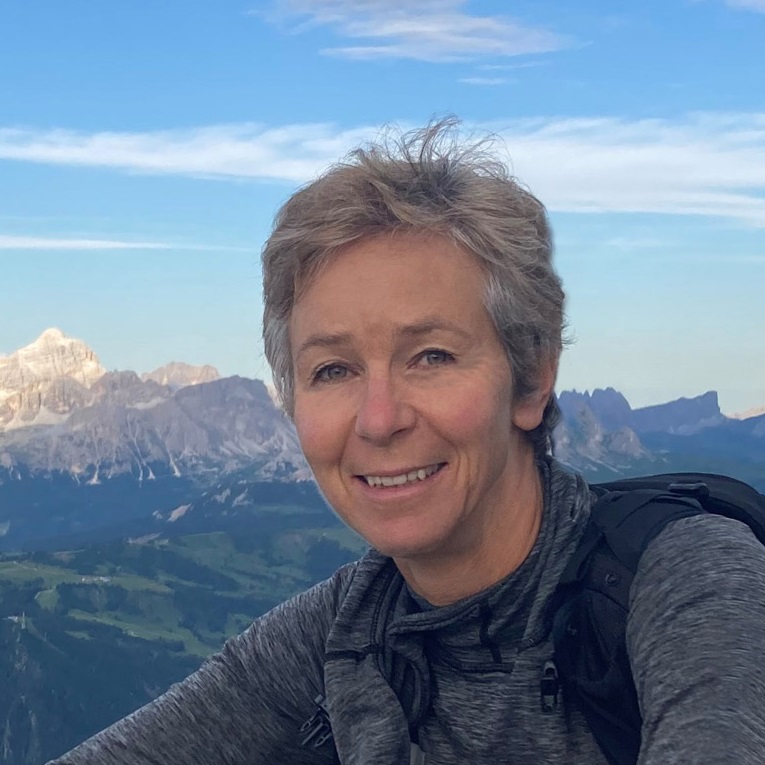Equity, Diversity and Inclusion (EDI) Statement
BTO is committed to educating itself, reducing and removing the barriers to equity and diversity, and creating an inclusive environment.
A note from Juliet Vickery, BTO’s CEO

“I am frequently asked why diversity matters in ornithology, in science or specifically at BTO.
Diversity means different things to different people, embracing age, gender, ethnicity, sexuality and much, much more. It follows that it will also matter to different people for different reasons so here I simply offer you three reasons why it matters to me personally and professionally. I refer to these under the headings of its importance morally, environmentally and organisationally.
First, we know that access to the natural world has mental and physical benefits for our own health and well-being, and these benefits should be equally accessible to everyone. This is not the case currently, and we need to understand the barriers preventing equitable access and work to overcome them. So it matters morally because of ‘what nature can do for people’.
Next, it matters because addressing the biodiversity crisis we face will require finding novel and almost certainly large-scale solutions to the relentless loss and deterioration of the natural world. The best way to secure novel ideas and broad-scale action is to maximise the number and diversity of hearts and minds around the table – so it matters environmentally because of ‘what people can do for nature’.
Finally, it matters organisationally; if BTO fails to reflect wider society, we risk becoming irrelevant and too narrow in our focus. In the coming years, we will be looking for new ways to cherish our existing members and engage with communities we haven’t connected with before.”
Juliet Vickery, CEO
Open to everyone
Our vacancies, activities and events are open to everyone, regardless of protected characteristics:
- Age
- Disability
- Gender reassignment
- Marriage or civil partnership
- Pregnancy and maternity
- Race (including colour, nationality, and ethnic or national origin)
- Religion or belief
- Sex or sexual orientation
- Socioeconomic background
BTO has a zero-tolerance policy on harassment on the grounds of a protected characteristic and unacceptable behaviour. We take seriously complaints that arise in the course of the organisation’s work.
Within BTO, zero tolerance means that we will take seriously complaints that arise in the course of the organisation’s work and that where we find behavior that is unacceptable we will take available steps to address it. Zero tolerance means that the steps we take will not be influenced by factors other than whether or not the behaviour was unacceptable e.g. length of service, position, etc.
When recruiting staff and volunteers, we take steps to reduce unconscious bias: we provide guidance to recruiting managers, and use a system that removes identifying information.
We also use initiatives that aim to reduce and remove barriers to those who are under-represented and under-served in BTO and the sector: we are users of the Disability Confident scheme, and guarantee first-round interviews for candidates from a minority ethnic background who meet the essential criteria for a role.
We also run events for particular groups within society, such as our Youth events, which seek to remove barriers to participation in our work.
We are:
-
Evidence-led: using our science, data and expertise to make a positive difference for birds and for people.
-
Inclusive: supporting, valuing and having respect for our staff and those who work with us.
-
Collaborative: working in partnership with individuals and organisations to achieve our collective goals.
-
Empowering: using our work to create opportunities through which individuals and communities can engage with science and the natural world, for the benefit of all.
Collectively, these values underpin our Strategy, which encompasses two action areas relating to growing the diversity of our staff, volunteers, members, and reaching communities currently under-served by the organisation and the environmental sector.
We will:
- Increase understanding of the importance of EDI to BTO, our work and our sector.
- Learn from and work with people with lived experience and expertise in EDI, ensuring that those sharing their expertise are paid.
- Support the wellbeing of those we work with, and who work for us, and who have lived experience.
- Celebrate the richness of the community we work within.
- Provide training and support, and raise awareness of EDI internally and externally, identifying opportunities to work with others in our sector.
- In collaboration, develop a framework for capturing and applying lessons learned, tracking progress, and assessing the effectiveness and impact of our work, projects or programs.
- Assess and update language, policies, processes and images.
- In line with GDPR, monitor the diversity of staff, volunteers, trustees, conference speakers and chairs, and award nominees and winners to measure the impact of our activities and progress towards EDI.
- Be open to challenge, ideas, and feedback; we would love you to join the conversation – please contact our People Team: peopleteam@bto.org
Latest updates from Juliet
In June 2022, I challenged everyone to learn more – and this is something I and my colleagues at BTO are committed to doing.
These are just some of our key actions since then:
Starting in 2022 we have been fortunate to work with Dr Anjana Khatwa on a series of sessions to develop our understanding of the barriers to EDI and how we can develop more inclusive practices across BTO.
I do not want to lose sight of the projects and activities that are ongoing, and being led so brilliantly by BTO staff who care deeply about making BTO an inclusive place. These include our fantastic youth engagement work, and our pilot community-based nature engagement project Ripple NI, which aims to engage people in Northern Ireland with their local wildlife and to involve more people from more diverse backgrounds in biological recording.
- We have also made a shift from working towards equality to working towards equity. You can read more about our decision to do this in Juliet’s blog, Equality vs equity: a crucial distinction in BTO’s work around diversity and inclusion.
Plans and progress
We made many exciting plans and have already made good progress with them, including:
- Sharing the same opportunity to work with and learn from Anjana with all BTO staff, our Trustees and groups of volunteers: Anjana provided five videos, each looking at a different aspect of EDI and race-equity and hosted live sessions for staff to ask questions and reflect upon their learning.
- Working on a framework to deliver our EDI work across BTO: working closely with Helen Bown, external consultant and Monitoring Evaluation and Learning expert, we have co-developed a vision and framework for inclusion with staff and volunteers; we hope to share an update on this and our plan of action soon.
- Committing to participating in the Race Report this year, following our participation in 2022: BTO contributed to the RACE Report 2024 – read our transparency card for more information.
- Recruiting to a role to help deliver our EDI work: BTO welcomed Anna Dupont-Crabtree to a new People and EDI role in February 2024.
- Learning more about the diversity within our existing community and sharing these stories: this is a significant part of our new vision and framework for inclusion – more information to follow.
- Co-developing a one-year research study to work with people in and around Thetford, Norfolk who are currently under-served by the environmental sector and by BTO: this is in progress, BTO is working with Civil Society Consulting to deliver a pilot project.
More information
Youth Advisory Panel
The creation of the BTO Youth Advisory Panel was an important element of BTO’s EDI work, with our panel members helping to steer BTO to better serve a more diverse audience, particularly our younger supporters.
They fulfil a strategic function, implementing their ideas in BTO’s wider work, and supporting our network of Youth Representatives. The panel has developed an inclusive and extensive Youth Engagement Strategy 2023–28, helping BTO inspire the next generation of birdwatchers.
Youth Advisory PanelSafeguarding
Our Safeguarding Policies are not only about protecting those at risk of harm and abuse, but also about promoting a positive, supportive and accountable culture that nurtures the general health, safety and wellbeing of all those we work with.
Safeguarding PolicyPrivacy
BTO’s Privacy Statement outlines how we manage personal data, including information about protected characteristics of our staff, members and volunteers.
Privacy StatementGet in touch
We would love to hear from you. Please reach out to our staff to raise any concerns you have about your experience of engaging with BTO, or to share suggestions about how we can improve our approach to Equality, Diversity and Inclusion.
Contact us





Share this page